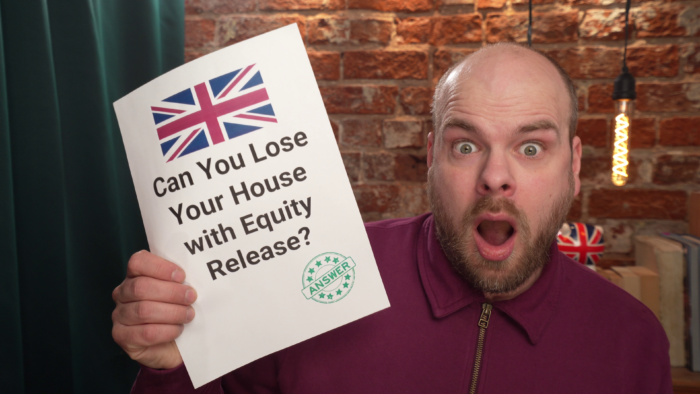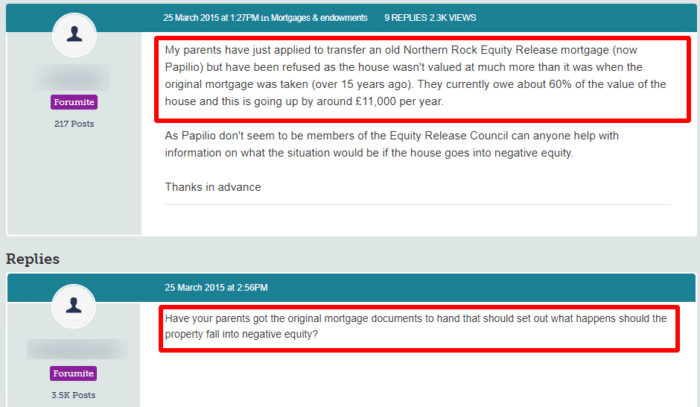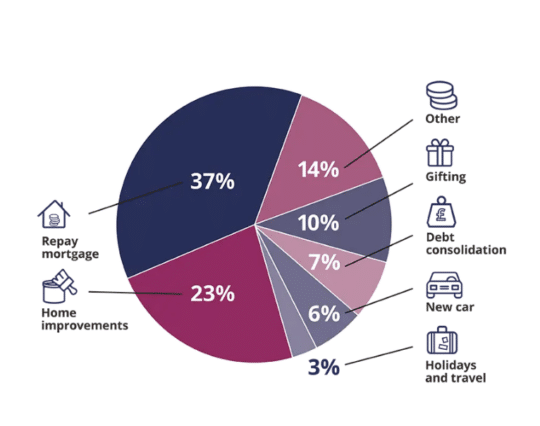Can You Lose Your House with Equity Release?
Our preferred equity release adviser is Age Partnership. For free and impartial money advice you can visit MoneyHelper.

Our preferred equity release adviser is Age Partnership. For free and impartial money advice you can visit MoneyHelper.
Are you interested in equity release but worried about what could happen to your house? You’ve come to the right place. Every month, over 7,000 people visit our website to learn about equity release.
We know that it can be a worry to think about money and debt. You may feel unsure about how equity release works and what could happen if things don’t go as planned. Studies found that over half of equity release customers use equity release to fund home improvement projects.1
That’s why, in this article, we’ll explain:
- What equity release is, and how it works
- The risks that come with equity release
- How negative equity could impact you
- Ways to get a realistic quote for equity release
- If you could lose your home because of equity release
Our team knows about these concerns. We understand how you feel, and we are here to give you the facts and advice you need to make the best choice for your future.
Ready to learn more about equity release and what it could mean for you and your home? Let’s get started.
What Is Equity Release?
Equity release is a way for you to gain access to some of the value of your home. There are two schemes that are considered to be forms of equity release, and these are:
- Home reversion: You sell either part of your home (the value) or all of your home to the finance company. You then live in your home until you either die or move to full-time residential care facilities.
- Lifetime mortgage: you borrow a fixed sum of money, and the loan is secured against the value of your property. How long this equity release scheme works depends on whether it ends with you moving to a different property, into residential care, or if you die.
So the main takeaways here are that you can:
- You may live in the property for the rest of your life or until you move to full-time residential care.
- If you move home, you can generally move the equity release plan as well.
- You will never owe more than the value of your home when it is finally sold, in most cases.
You can find out more about the different types of equity release schemes in my handy guide.
As part of the equity release process, you are also required to get independent legal advice. Most people can get independent legal advice from the same company they receive financial advice from, such as equity release specialist companies. They’ll also help you search for lifetime mortgages in the UK and compare options.
How Does Negative Equity Happen?
The concept of negative equity is pretty simple to explain. Imagine you purchased your home for £500,000 initially.
And then, due to fluctuating interest rates and a downturn in the housing market, the property is only worth £400,000. If you have already paid back a significant amount of the initial mortgage, you may have negative equity, where the amount you have paid back is more than the actual value of the fraction of the property (or the entire property if your mortgage is paid up) covered.
How equity release could help
More than 2 million people have used Age Partnership to release equity since 2004.
How your money is up to you, but here’s what their customers do…
Find out how much equity you could release by clicking the button below.
In partnership with Age Partnership.
How Does Negative Equity Impact Equity Release?
If you have taken on an equity release plan that has been approved by the Equity Release Council (ERC), then the agreement will have a no-negative equity guarantee clause. What this means is even if your home goes into negative equity, you will never be asked to pay back more than the actual property value at the time of sale, even if you borrowed more.

Can You Lose Your Home Because of Equity Release?
Now you know what negative equity is, I need to explain how it can have an impact on your equity release plan. I have already mentioned using a finance firm that offers an ERC-approved equity release scheme. It may pay to avoid equity-release companies that are not ERC-approved. There have been a number of equity release horror stories from people using unapproved vendors.
» TAKE ACTION NOW: Find out how much equity you could release
However, in general, you shouldn’t worry. Even if you owe more than your home is actually worth (due to negative equity), the lender will not repossess your home.
This is because the lender does not expect you to start making payments against your equity release plan until you sell your home, you die, or you move into long-term care. But as the original contract for the equity release is a legally binding agreement, there are some cases where the agreement itself could put your home in jeopardy, as we have explained below.
- You gave false information when you applied for an equity release type of loan.
- You failed to keep the house maintained properly, to the standard that the loan agreement stated.
- If you move into long-term care, you will generally be given 12 months to repay the loan by selling your home. If this is not done, the property might be repossessed.
- You have not resided in the property for more than six months and have been living elsewhere.
Join thousands of others who release equity
Age Partnership have helped over 2 million people release equity from their home.

Mrs Wareham
“I am more than pleased to have taken out Equity Release with Age Partnership.”
Reviews shown are for Age Partnership. Search powered by Age Partnership.
How can equity release affect inheritance?
Taking out an equity release plan may lower the amount of your inheritance, and many people are concerned that there may not be a lot left to leave to your beneficiaries.
One way to protect some of the value of your home to make sure that your family will definitely inherit a portion of it is to choose an equity release plan with a protected equity guarantee, also known as an inheritance protection guarantee.
What Happens When You Start Making Repayments but Have Negative Equity?
Most equity release plans don’t require you to make any regular repayments, although some do. If you have the latter type of equity release plan in place, you will find that your repayments were calculated on the original loan-to-value amount for the property.
When you start making repayments, the amount you have to repay each month will reflect this original property valuation. So, not only will you have lost due to negative equity, but you are also paying back more than you would have needed to, based on the current value of your property.
This is why it is very important to consider using an ERC-recognised equity release provider that will write a no-negative equity clause into the credit agreement, which will also recalculate the cost of repayment in instalments based on the current property value when you start making repayments.
The Bottom Line
It is very rare for a lender to repossess the home of a person who has taken out an equity release plan with them. This is because you are not expected to repay the debt until the property is no longer being used by you. As long as you stick to the terms of the agreement, you should be fine, especially if the equity release plan you have in place was approved by the ERC and has a non-negative equity clause.




